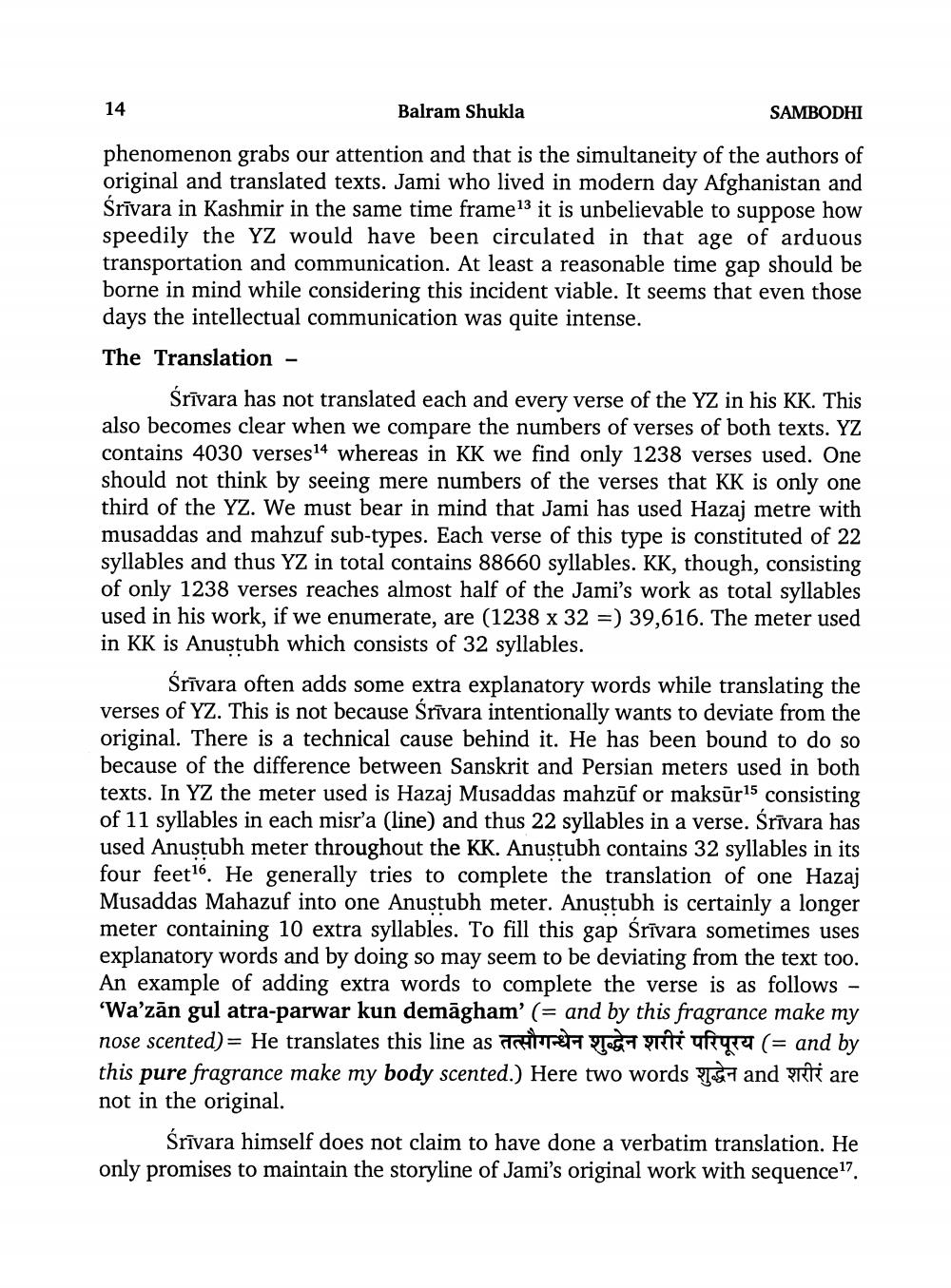________________
14
Balram Shukla
SAMBODHI
phenomenon grabs our attention and that is the simultaneity of the authors of original and translated texts. Jami who lived in modern day Afghanistan and Śrīvara in Kashmir in the same time frame13 it is unbelievable to suppose how speedily the YZ would have been circulated in that age of arduous transportation and communication. At least a reasonable time gap should be borne in mind while considering this incident viable. It seems that even those days the intellectual communication was quite intense.
The Translation -
Śrīvara has not translated each and every verse of the YZ in his KK. This also becomes clear when we compare the numbers of verses of both texts. YZ contains 4030 verses14 whereas in KK we find only 1238 verses used. One should not think by seeing mere numbers of the verses that KK is only one third of the YZ. We must bear in mind that Jami has used Hazaj metre with musaddas and mahzuf sub-types. Each verse of this type is constituted of 22 syllables and thus YZ in total contains 88660 syllables. KK, though, consisting of only 1238 verses reaches almost half of the Jami's work as total syllables used in his work, if we enumerate, are (1238 x 32 =) 39,616. The meter used in KK is Anușțubh which consists of 32 syllables.
Śrīvara often adds some extra explanatory words while translating the verses of YZ. This is not because Śrīvara intentionally wants to deviate from the original. There is a technical cause behind it. He has been bound to do so because of the difference between Sanskrit and Persian meters used in both texts. In YZ the meter used is Hazaj Musaddas mahzūf or maksūr15 consisting of 11 syllables in each misr'a (line) and thus 22 syllables in a verse. Śrīvara has used Anustubh meter throughout the KK. Anustubh contains 32 syllables in its four feet 16. He generally tries to complete the translation of one Hazaj Musaddas Mahazuf into one Anustubh meter. Anustubh is certainly a longer meter containing 10 extra syllables. To fill this gap Śrīvara sometimes uses explanatory words and by doing so may seem to be deviating from the text too. An example of adding extra words to complete the verse is as follows - 'Wa'zan gul atra-parwar kun demāgham' (= and by this fragrance make my nose scented)= He translates this line as a pet loc priti ufura (= and by this pure fragrance make my body scented.) Here two words place and prri are not in the original.
Śrīvara himself does not claim to have done a verbatim translation. He only promises to maintain the storyline of Jami's original work with sequence17.




